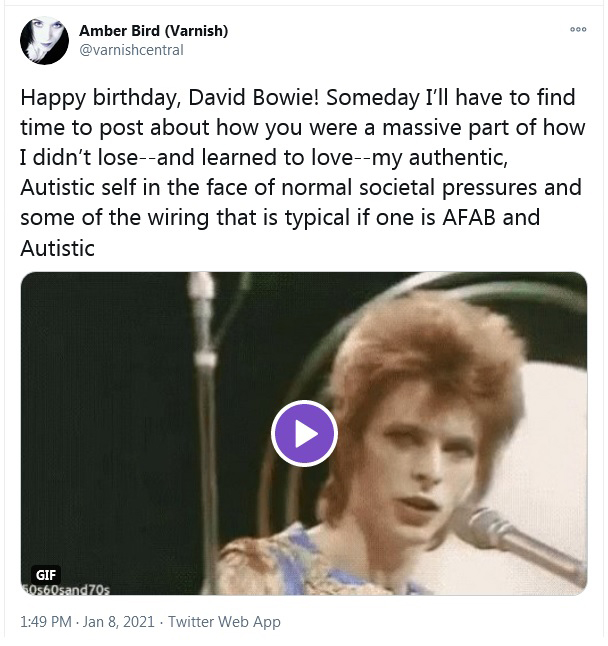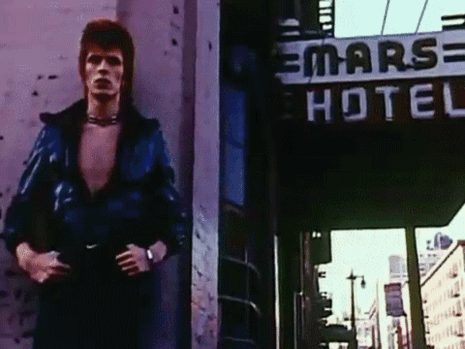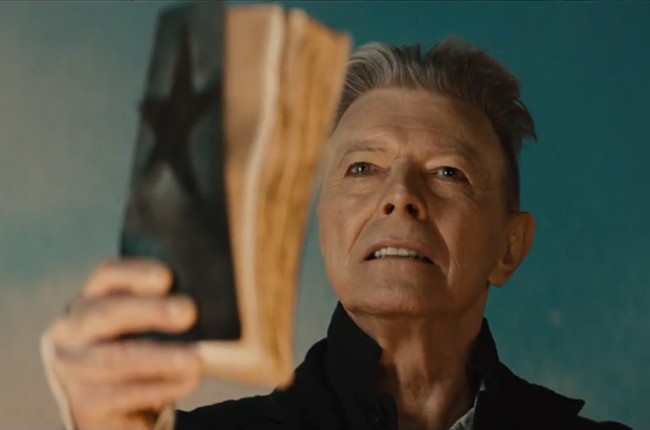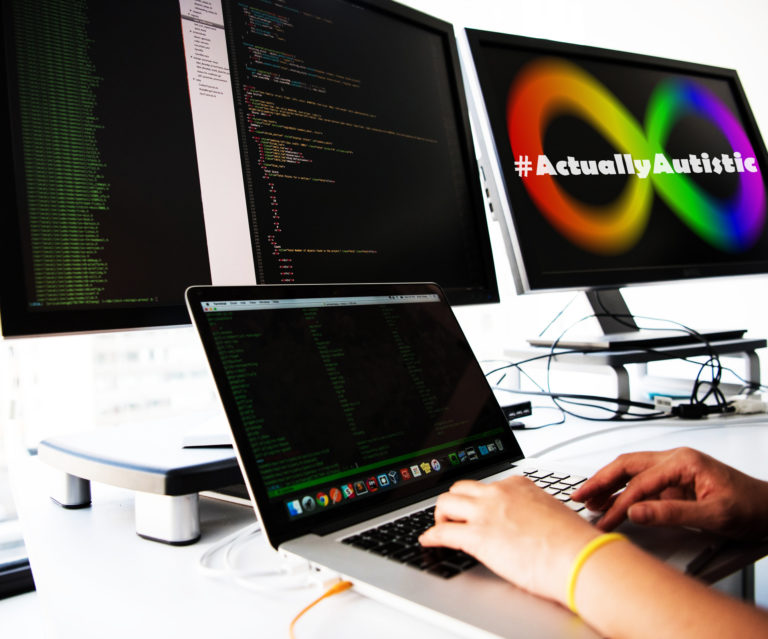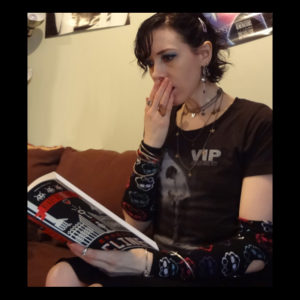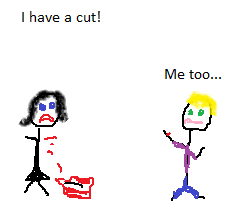(I know some people would say an author should keep their blog all writing-related. If you’re one of those, skip this post.)
Three years ago today, one of the lovely medical professionals at the University of Washington Adult Autism Centre confirmed that I was on the spectrum. In three years, I’ve learned a lot, I’ve gotten to know myself better thanks to this new self-knowledge, and I think I’ve changed my attitude and thoughts about Autism and disabilities for the better.

Mostly, just like allistic people (aka people who aren’t Autistic), I find that my brain wiring presents me with good stuff and challenges. And, whilst I don’t love the challenges (which come from my brain but also from society), I wouldn’t want to stop being Autistic. I’m glad I’m an Autistic person.
As I’ve thought what I might post to recognise today, and as I’ve pondered maybe doing more regular, nakedly honest posts about how Autism plays out in my life (since every Autistic person is unique), there’s one topic that’s come to mind over and over, probably because it comes up in conversations over and over (I even occasionally post a shorter form of this on FB when there’s been a rash of unhappiness thrown my way). A thing that, at least to me, also seems most relevant in the harmonious function of my relationships with others. It’s also a topic that isn’t unique to my Autistic experience. I have seen it come up with all sorts of people who have life changes, especially ones related to mental or physical health or function.
I don’t speak for all those other people; this post is about me. But maybe it can also help you consider a different perspective with others as well.
The issue can best be summed up by the phrase most often uttered at me in regards to said issue: But you used to…
Before I had a diagnosis to tell me that my brain was wired a way that wasn’t typical, I just assumed that life and interaction felt this way to everyone. I assumed (and had been told) that maybe I was “too sensitive†and just needed to suck it up. I, frankly, showed myself mainly strict, sometimes brutal, insistence on doing what “normal†people did and mostly didn’t even consider applying self-compassion. Even though I had decades of lived experience, of trying to make myself just get used to things, of failing to get used to things, I didn’t stop pushing. Even though others didn’t appear to have some of the difficulties and discomforts I have, I just kept pushing because maybe, like me, they were all hiding the same discomforts and upsets. I adjusted slightly as I learned more about what it meant to be an introvert (which I am), but only very, very slightly. Not enough.
Here’s a metaphor I like to use to explain:
Let’s say you have grown up in a home where your parents always put food on the plate for you rather than you doing it yourself. From the time you were too little to remember, they have lovingly heaped a plate with too much food and given it to you at every meal. They don’t know this is too much, and so they insist you eat every bite. You grow up assuming that eating just involves discomfort. (You know that discomfort after, say, American Thanksgiving or a really lovely Christmas dinner? Imagine you feel that after every meal, so you assume it’s normal.)

You know your parents love you (and the food tastes good), and you know they’ve got years more of lived experience than you, so you don’t have any reason to question it. This is how one must eat, and this discomfort is just a part of life. When you move out, you just keep feeding yourself those same portions. That’s typical (aka normal), right?
But then you get in a relationship, and they want to cook you a meal. When they bring you a plate, there’s less food. You don’t want to be rude, so you just go with it. The food is good and the intentions are great and…Oh, you don’t feel discomfort after. And you also don’t feel hungry. Interesting. So, you go home and you try making those smaller portions your new normal. You start to pay attention to other people and portion sizes. You realise that, in fact, the typical feeling after a meal isn’t discomfort.
Maybe you occasionally humour your parents when you go back for a visit, or you still occasionally over-eat when something is just so good you decide the consequences are worth it this time. But, overall, you honour your body’s actual needs and capacity and, while you used to eat whole large pizzas in one sitting on your own (a thing I used to do both actually and metaphorically), you don’t do that anymore.
I went with food, because many in Western societies can understand and because this assumes no ill intentions, no villains. But you can probably also do something similar relating it to the sleep dep one gets used to at certain points in life or the way some of us adjust to abusive situations. You just don’t know, or you forget, that what you’re living and feeling isn’t actually the way it has to be, isn’t “normal.â€
When I got my diagnosis, I went and I did some research. I stopped looking at what life was like for allistic people, what the neurotypical experience was, stopped trying to forces myself to be or to at least appear like that. I started reading about what this differently wired brain of mine might mean, what sort of experiences might be typical for the neurodivergent. I started to learn that typical people didn’t feel and react like I did in many situations, but that I was also well within typical for someone on the spectrum. I’m Autistic, so I have a different “appetite†than you do. And that’s okay.
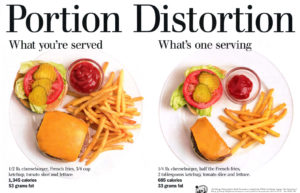
I started to try to only “feed†myself what my brain and body could handle. And the change has been great. Far fewer meltdowns. Far fewer instances of sensory overload. Less discomfort. Less misery. And, at least for me, the things my Autistic brain excels at are now, uh, more excel-y.
Some people might be thinking, “But you didn’t ever complain before.â€
You’re right; I didn’t. Why should I when I assumed we were both pushing through these same things? Why should I when, the few times I ventured to tell people how I was feeling, I was mocked or treated unkindly? (Not by you, maybe, but also I maybe didn’t tell you because I’d been sufficiently shamed into silence, into assuming I was just broken, before I even met you.)
I also generally hesitate to mention this sort of thing because some of you find it hard not to take my changes personally. Or, if I don’t mention them in a broad and public way like this, you might wonder if I’m only saying this is broadly applicable to spare your feelings.
The fact is:
- I have sensory processing issues. Noises and sights (including lighting) that are totally nothing to you can quickly flip my brain into overload. Touch is another big one, and that includes things like temperature. (I’ve also got some taste sensitivities, but I’m usually not licking you…). I think smell might be the one sense where I’m close to typical…
- I have some innate anxiety that also complicates anything to do with human interaction. I’m not shy or scared of interaction (which is a thing often cited against me when people don’t believe I’m an introvert); it’s more that my brain’s survival instincts involve a strong aversion to doing anything incorrectly or imperfectly lest I die or be cast out of the protection of the tribe. (I’ve never managed to convince my brain that there are no longer sabre-toothed tigers in the shadows.)

- If I don’t get hours of solitude a day (sleep and, when applicable, time spent doing a day job don’t suffice), my brain starts to spool up and break down. I suspect, at the very least, that’s because the solitude is a break from sensory and anxiety issues.
So, yes, I used to “over eat,†metaphorically speaking, ignoring the many consequences that came from not honouring the things in those bullet points, and so I used to live with a higher level of constant discomfort. And, sure, the food was sometimes so good. But I’m now living a life that keeps me as close as I can manage to “eating proper portions†for me. Or trying to. There are some things that still keep me a little over-fed that I can’t seem to shake yet. And there are some times I choose to over-eat a little because I just love you or an experience enough that I justify a little misery, as an exception, just this once.
I know that my family and my true friends (and probably hosts of well-intentioned strangers) wouldn’t want to make me miserable. I also know that most, if not all, of them are trying hard to be understanding of the changes. (Thank you!!) And that there have been some things going on the last year or so that have made it so I couldn’t even, if you will, eat as much of them as I’d like and could safely do.
I hope this helps you understand me (or others in your life) a little better and maybe feel a little less hurt, frustration, etc as we stop doing things we used to do in pursuit of good health.
Yes, I used to, but I don’t anymore.
